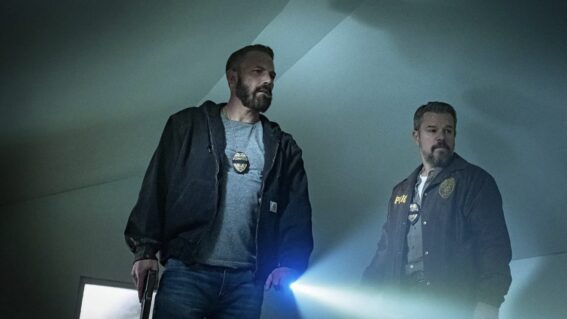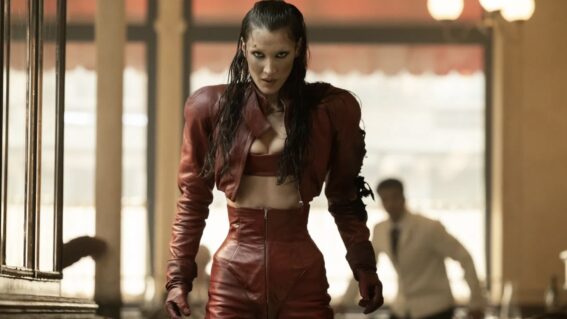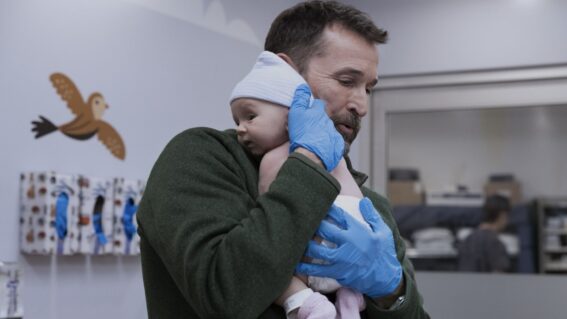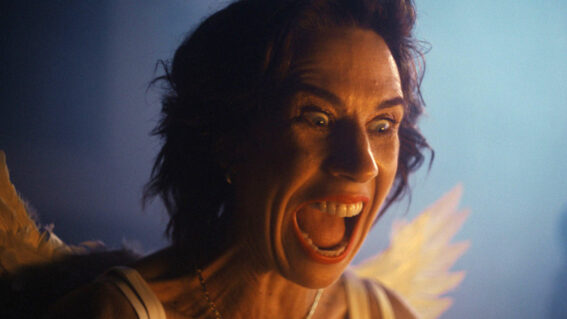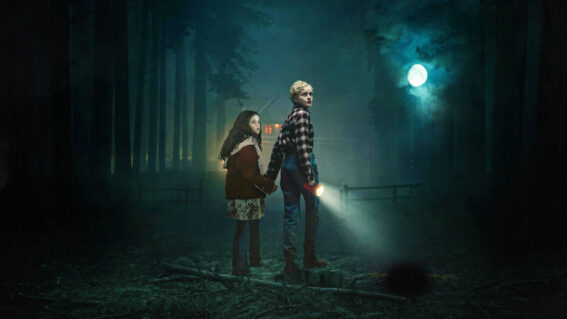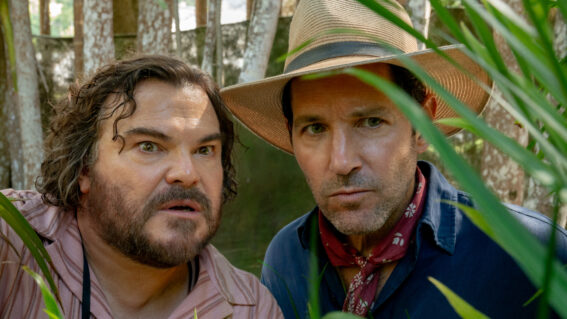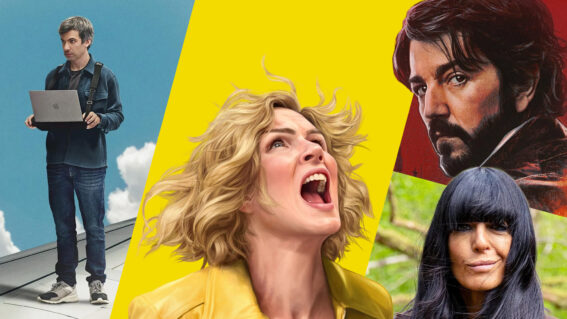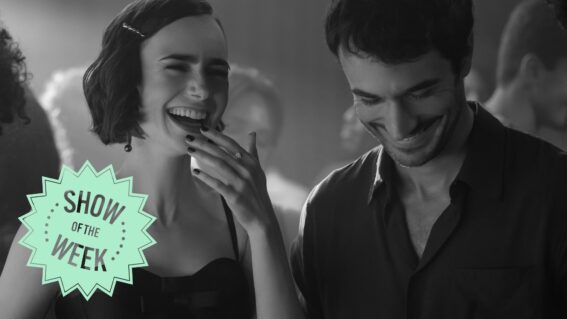‘Trouble Is My Business’ Interview, with director Juliette Veber
Trouble Is My Business – a documentary now playing in cinemas – takes you inside South Auckland’s Aorere College. The film’s honest, unforced observation of Kiwi kids, their growing pains and the school’s passionate Assistant Principle, Gary Peach, is something rarely seen on our screens. Flicks.co.nz talks to director Juliette Veber about how she did […]
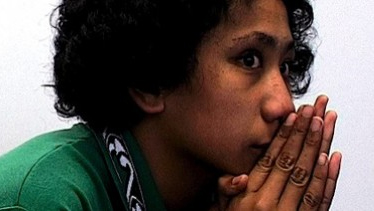
Trouble Is My Business – a documentary now playing in cinemas – takes you inside South Auckland’s Aorere College. The film’s honest, unforced observation of Kiwi kids, their growing pains and the school’s passionate Assistant Principle, Gary Peach, is something rarely seen on our screens. Flicks talks to director Juliette Veber about how she did it.
One of the film’s major strengths and pleasures is its observational nature. What effect are you trying to create with this approach?
I always intended to make an observational documentary in South Auckland. It’s the kind of documentary filmmaking that inspires me. I wanted to take the audience into a world that they may not be familiar with. I was not from the area, so for me it was also very important to remain unobtrusive as the director. It was important to me that the film allowed the subjects to tell their own stories.
How did you blend in? What’s the secret to getting such candid and unstaged responses from the teachers and students?
I worked at Aorere as the Arts Co-ordinator for six months before I started shooting, so the teachers all knew me and many of the students had seen me around the school. I can also be quite shy when I first meet people and I think this worked in my favour as it meant the students weren’t intimated by me. I think the kids and their parents could tell I was a genuine person; they trusted Mr Peach, and Mr Peach trusted me. The main reason though is that I was filming for so long that everyone just forgot about me.
One of the decisions I made after shadowing Mr Peach for a day was that I would need to shoot the film myself and also do sound. I had a cinematographer on board already but realised there was no way the two of us would be able to keep up with Mr Peach. He was constantly slipping in and out of rooms or corridors, into his car, into a home and then back to his office and a crew of two just wouldn’t be able to match his speed. I knew that the secret would to be as unobtrusive as possible, to avoid interrupting the flow of the school, so one person plus a camera and a microphone was the solution.
Mr Peach wore a radio mic every day so I was able to record everything he said, and I had a microphone on the top of my camera to record the student’s responses. This actually dictated the way I shot the film, because I had to point the camera at the students in order to make sure I recorded their sound. I had already made a conscious decision to film the people Mr Peach was talking to rather than Mr Peach himself, so this worked out perfectly with my technical limitations.
The editing of the film must have been a massive challenge. Can you describe the process of whittling all the footage filmed over six months and creating a structure from it?
The editing process was definitely a challenge. I filmed over a hundred hours of footage. My sister logged all the footage for me while I was shooting – so I knew what was on each tape. Some days I would come home and she would be sitting in front of the TV and her eyes would be completely glazed over! It was really helpful to get a second opinion, and she responded to the material in the same way as me, which was great.
From there I spent a year learning to use [editing software] Final Cut Pro, editing scenes, and finally assembling a complete 2 1/2 hour edit. I showed it to a few friends and although it had a long way to go structurally I knew I had some very powerful footage.
At that point Cushla Dillon returned from overseas and agreed to work with me on the edit. The biggest challenge for us was that there was no natural over-arching structure for the film, apart from Mr Peach’s emotional journey.
Mr Peach’s personality was also a challenge for the edit. I call it the “many shades of Mr Peach” – he has a different mode depending on the situation he finds himself in. He is an amazing negotiator, he is very caring and gentle, but he can also be hard when he is in his disciplinary mode. If you cut together all the dramatic moments when Mr Peach is frustrated or angry it can be quite overwhelming to watch and not an accurate picture of the Mr Peach that I knew. It was very important to me that the story was truthful to what I had experienced, but it took us time to get the film to that place.
There was a certain point where I realised that the film already knew what it was supposed to be, and that somehow I was just trying to get the footage to that place. It was like a massively complicated jigsaw puzzle, where the overall structure, sequences and individual scenes needed to be revisited and each time something was changed, everything needed to be considered in response to that.
It was so challenging that at one point I phoned my five best friends and asked them whether I should just give up and shelve the project. Every single one of them said you can’t give up, you have to keep going. In the end, I knew I owed it to the kids to finish the film. I knew how easy it was for people who are not from the area to just ignore the problems that kids in South Auckland face. I did not want to be one of those people. I knew the story needed to be told for their sake. And somehow after 3 1/2 years of editing, the film emerged from within the footage and we knew it was finished.
What documentaries – in style or subject – do you draw upon for inspiration?
I am influenced by cinema verite documentary filmmakers; the Maysles Brothers (Salesman, Grey Gardens, Gimme Shelter), DA Pennebaker (Don’t Look Back), Frederick Wiseman (Titicut Follies), early Nick Broomfield (Chicken Ranch) and Nicholas Philibert (Every Little Thing).
For this particular documentary, I was inspired firstly by a documentary that US documentary maker Frederick Wiseman made in 1967 called High School. It’s an entirely observational documentary that does not follow one single character. The structure and story unfolds thematically to show how a school system exists not only to pass on facts but also to transmit social values from one generation to another.
Around the time that I started filming, I heard about Nicholas Philibert’s Etre et Avoir (To Be and To Have) – a brilliant documentary about a teacher in a rural school in France. This film is also completely observational, but it’s the opposite of my film. The film is set entirely in one classroom, the camera is very still, and the action unfolds quietly in front of the viewer.
When I started shooting, I had also recently seen Gus Van Sant’s Elephantand this film had some influence in the way I filmed Mr Peach. Elephant has several sequences where the camera follows the characters as they walk long distances. I had no choice but to follow Mr Peach with my camera so planned to use this technique anyway. As he walked briskly across the school grounds I rushed behind him trying to keep up. I like the way it gives you the sense of the student’s point of view, as if you are trailing behind him.
What is it about Mr Peach that creates the rapport he has with the students?
He has a way of showing the students how much he cares about them. He is genuine and he shows them that. He is also very fair and not afraid to apologise if he discovers he is wrong. He likes to joke around with the kids. He’s part disciplinarian, part teacher, part parent and part friend. Mr Peach grew up in Otara, so he really understands what the kids are going through – he was exactly like them when he was young. He is married to a woman who is Cook Island, so he has a great understanding of Pacific Island culture.
What has the reaction to the film been like? From the school, students and Mr Peach?
The reaction has been overwhelmingly positive!
I originally made the film for people who are not from the area, because I thought it was very important that people see beyond the headlines South Auckland makes. I wanted to show how complicated it can be for some kids to even get to school, particularly in terms of the social issues that are inherent in the area.
But once I began filming, I realised it was crucial that the community embrace and feel proud of the film. This became the driving force for me. And the reaction from the community has been extremely positive. We have had countless emails from people who grew up in South Auckland thanking us for making the film, and saying how it feels very real and true to their experiences. One girl’s Aunty said that I had made a film about the reality of their lives and that’s why she liked it. I couldn’t really ask for more than that!
Mr Peach is happy with the film, and he thinks it is an accurate portrayal of that time at Aorere. He says that I have done a good job. He is a humble person so had difficultly with being singled out as a hero, but he understands why I wanted to make the film and he agrees that it is very important for New Zealanders to see.
The first time Alicia saw the film she was shocked to see how troubled she was when the filming took place. She has changed a lot since 2004, she is just about to start a law degree at University, and still finds it hard to watch the film even though she’s seen it several times. However she believes in the messages of the film and is happy to have been a part of it. Mosese thinks the film is very funny – he cracks up every time he sees himself. Mosese has also changed a lot; he’s now married with a baby, and goes to church regularly. Jade really likes the film too. The first time she saw it she found it very moving and cried through a lot of it.
Trouble Is My Business is now playing in cinemas. Read more on the film or watch the trailer.





